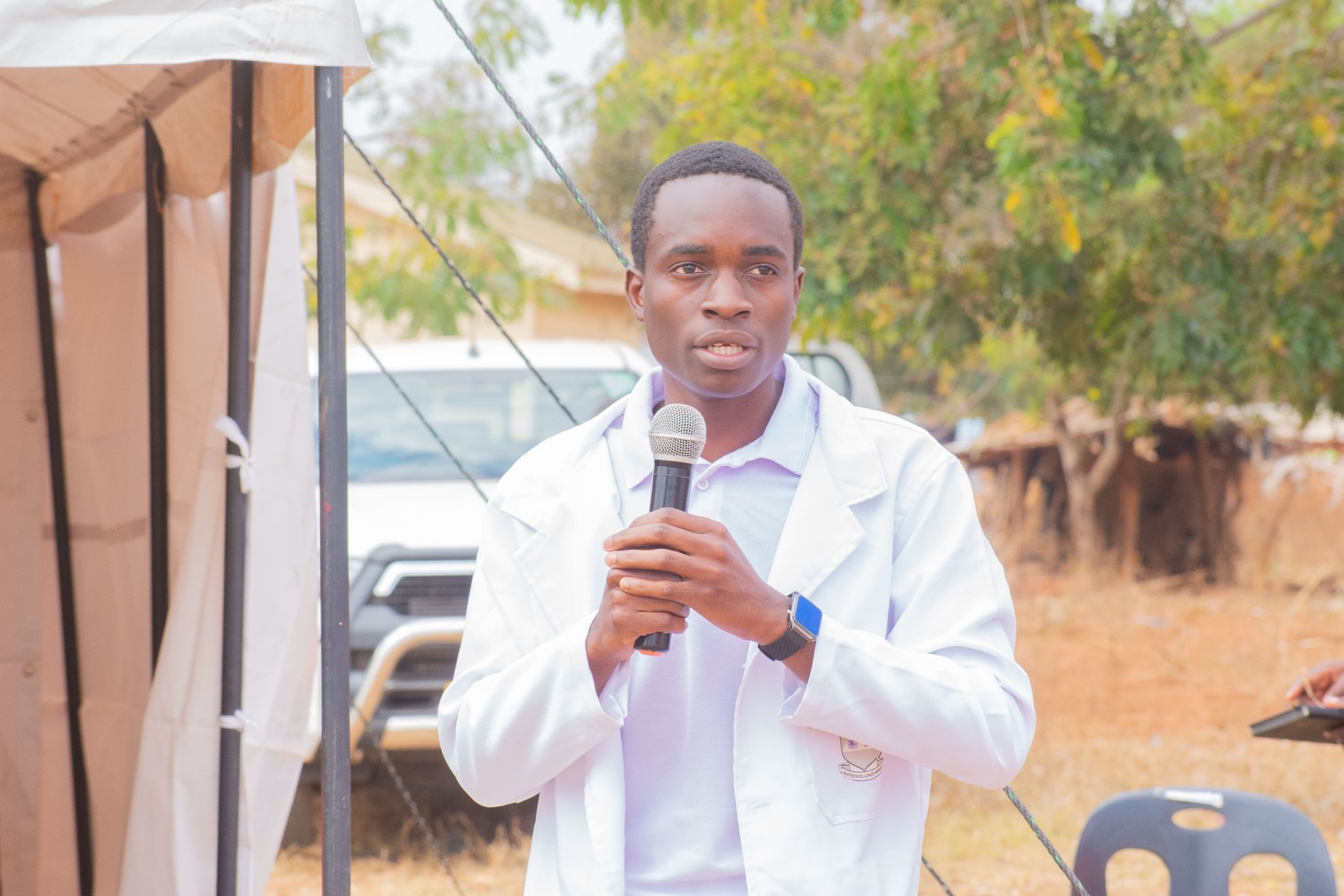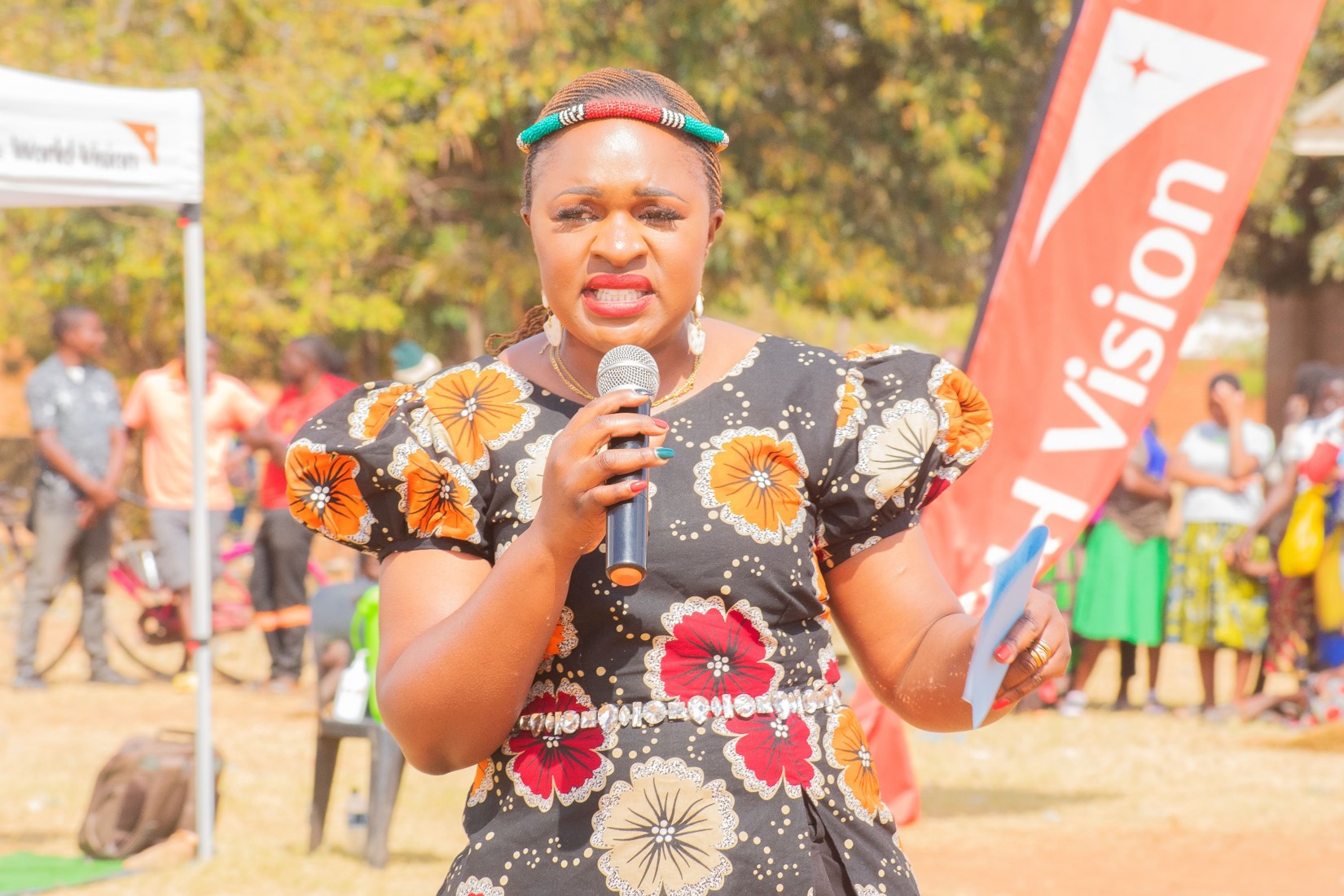World Vision Malawi Bids Farewell To Likasi AP.

By Trinity Kubalasa,
Communications and External Engagement Manager, World Vision Malawi.
When World Vision joined Likasi community in 2007 in the area of Senior Chief Mavwere in Mchinji, Tissah Kampheta was just 10 years old. This year World Vision exists the community when Kampheta is 28 years old.
She says she is left with a never-ending radiating smile. She is now a professional carpenter having been trained by Nkhwazi Vocation Training Centre that World Vision supported into existence.
“I
grew up when this community did not have enough requisite education infrastructure not to mention a vocation training institution. Child marriages were on the rise. I am happy today, child marriages have reduced substantially and I am now a carpenter because World Vision brought a vocational training institution just close to my home,” brags Kampheta.
Kampheta is an example of the quality of citizens that World Vision leaves behind after 18 years of rolling out interventions in the areas of education(T365),Water, Sanitation and Hygiene(WASH),Maternal and Child Health(MCH),Livelihood and resilience as well as sponsorship and advocacy.
Apart from vocation skills, WV Malawi also partnered with the community in putting up robust Early Childhood Development centres, a development which has increased the number of children transitioning to tertiary education institution.
Andikalo Lomosi, a 19 year old Bachelor of Science in Immunology at Malawi University of Science and Technology (MUST) is also another examples of World Vision’s commitment to creating a community’s sustainable future.

Being a former sponsored Child, his matriculation into the university sparks undimmed inspiration for young children to toll-on with education endeavors.
“I came from a community where university education was almost a myth. But World Vision showed me a world of possibilities beyond my community’s envisage. Yet here I stand as a second year Bachelor of Science student at Malawi University of Science and Technology (MUST). I owe my success from primary school, secondary to the current status to the support that this community has received from World Vision,” says Lomosi.
On her part, Minister of Tourism, Hon. Dr Vera Kamtukule who came to witness the transformation of Likasi Community has challenged the local residents to prove that world Vision has left them with a set of skills that will sustain generations to come.

“Government is so proud of World Vision’s role in development from Nsanje to Chitipa, and yet here we are witnessing the same. I want to challenge you that government cannot do everything because of resource constraints, and yet we are proud of such partners as world Vision.
“So using the capacity left with you, prove that you have been given fishing gear so you can bring fish home on your own. Should we come here after 10 years, we ought to find this unbroken story of transformation still reeling,” she said.
Senior Chief Mavwere has since praised the organisation for its holistic programming approach, saying the organization is leaving having changed the area in all critical spheres of development.
“As World Vision exists, we have seen huge improvement in our Early Childhood Development, educational infrastructure and above all, mind-set change. This will enable us continue to do better even after World Vision has ceased to operate,” he said.
World Vision Malawi’s board Chair, Sophie kalinde has since praised government for being fluid to the organization’s interventions. She says it is the direct involvement with government key departments that make the interventions quite sustainable.
“Our presence here to witness the official closure of World Vision’s work here bears testimony to the relevance of government’s key structures that are available in the communities. We bank on these structures to continue uplifting the lives of children, the elderly and the vulnerable now and forever. We leave the community with a set of skills yes, but the urge to see that they are committed to play lies with the structures we found and yet we are leaving today,” she said.